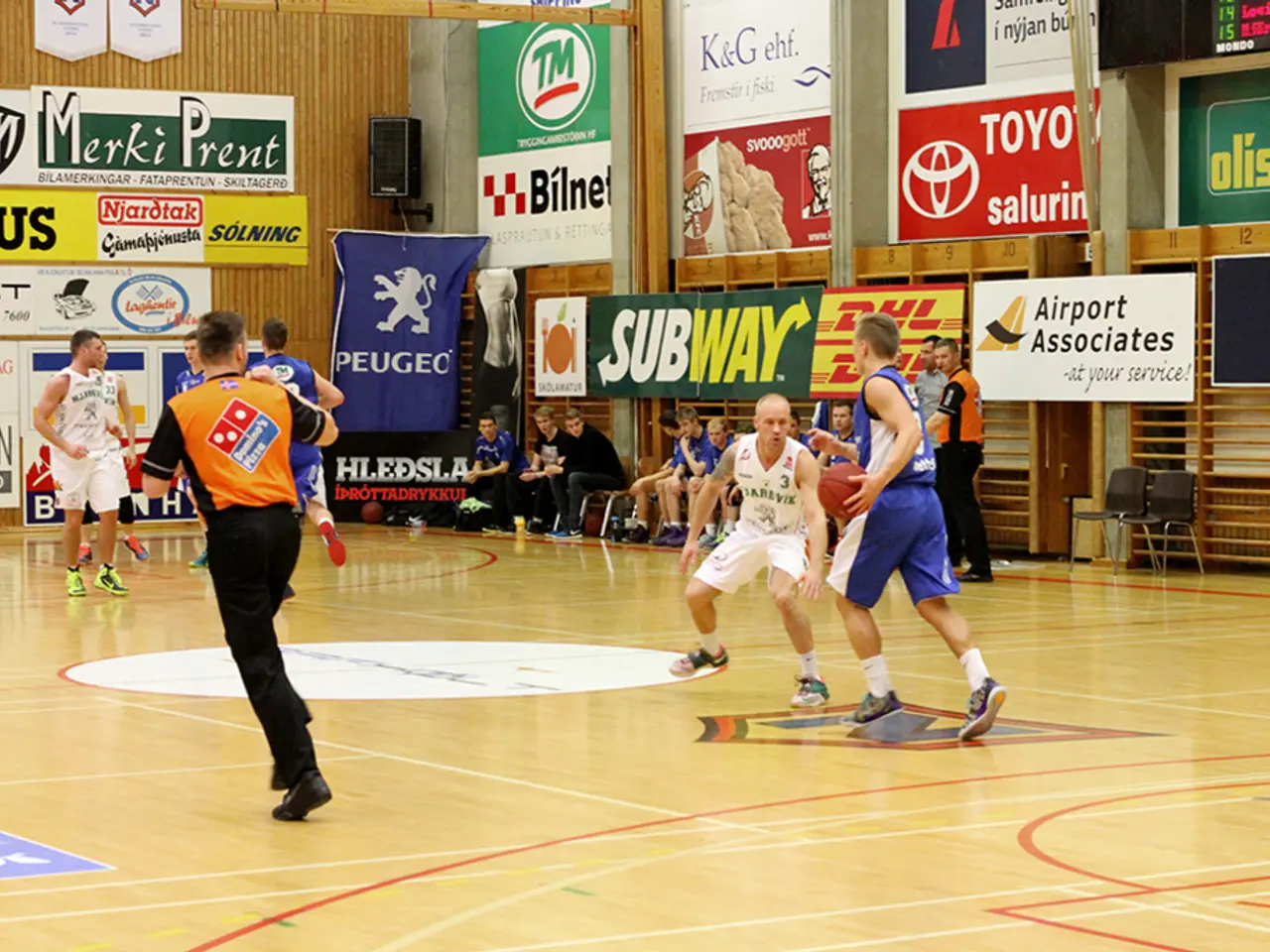Executive order by Trump on college sports unlikely to significantly impact the status quo
President Trump Issues Executive Order on College Sports
President Donald Trump has issued an executive order titled "Saving College Sports," aimed at addressing antitrust issues, clarifying the employment status of college athletes, and limiting potential legal challenges in the rapidly evolving world of collegiate athletics.
The Order, which directs several federal officials and agencies, including the Secretary of Labor and the National Labor Relations Board, to clarify the employment status of college athletes, seeks to create clearer national standards amid ongoing debates about athlete compensation and employment status. This clarification aims to preserve "educational and developmental opportunities" provided by college sports and prevent classification of college sports as professional.
On antitrust issues, the Order instructs the Attorney General and the Federal Trade Commission to take action to safeguard college athletics from "endless, debilitating antitrust and other legal challenges." The NCAA and allies support this federal intervention as a means to maintain competitive balance and the sustainability of college sports programs, especially women’s and non-revenue sports.
Regarding athlete compensation, the Order prohibits third-party pay-for-play payments but allows for "legitimate, fair-market-value" endorsements and permits universities to share revenue with athletes under regulated conditions designed to protect non-revenue and women’s sports programs. This follows significant legal shifts from cases like O’Bannon v. NCAA, Alston, and the House v. NCAA settlement, which challenged the amateurism model by allowing athletes rights to their name, image, and likeness (NIL) and revenue sharing.
The Order also addresses gender equity concerns linked to recent court cases and multi-billion-dollar settlements. It emphasizes the protection and expansion of opportunities for women’s and non-revenue sports while supporting regulatory guardrails to prevent unsustainable bidding wars between schools for athletes.
However, the Order has drawn pushback from athlete attorneys and advocacy groups who argue it could benefit the NCAA at the expense of athlete financial rights. The success of the Order depends on how federal agencies implement these directives and how courts respond to ongoing legal challenges.
Attorney Paul McDonald, who is leading the college plaintiffs in Johnson v. NCAA, has taken issue with the characterization of college athletes as "different from professional employees" in the executive order. He stated in a statement to Sportico that the Johnson case recognizes college athletes as student employees, like their classmates selling popcorn at NCAA games, washing dishes in dining halls, checking IDs at campus libraries, filing papers in campus offices, etc., in Work Study-style employment programs.
The more agencies look into college sports, the more potential drawbacks and limitations they may find in weighing in. The executive order adopts the viewpoint that big-time college sports has become an unworkable, volatile, and overly litigious framework. The draft of the executive order expresses concern that the settlement resolving the House, Carter and Hubbard antitrust litigations may not provide long-lasting solutions.
If the SCORE Act passes Congress, President Trump would have the opportunity to sign a college sports act into law. However, the Order could be challenged in court, including on grounds related to equal protection and free speech. A federal declaration that college athletes are not employees would be a debatable interpretation of federal statutes and could be challenged in court. Restricting athletes' expressions, including through limiting NIL opportunities, could trigger First Amendment and right of publicity litigation.
In summary, the Order by Trump aims to clarify athlete employment status, protect college sports from ongoing antitrust litigation, regulate compensation practices, and address gender equity and sustainability concerns. Its success depends on how federal agencies implement these directives and how courts respond to ongoing legal challenges.
- The executive order on college sports, issued by President Trump, initiates an analysis of antitrust litigation in the realm of collegiate athletics and outlines actions to safeguard it from ongoing legal challenges.
- The Order also encourages education and self-development for college athletes, focusing on collective bargaining and ensuring educational and developmental opportunities, while clarifying their employment status to prevent classification as professional.
- In the realm of sports politics, the Order addresses general news topics such as gender equity concerns and athlete compensation, including the regulation of legitimate endorsements and revenue sharing, while drawing criticism from athlete advocacy groups who argue for financial rights.




